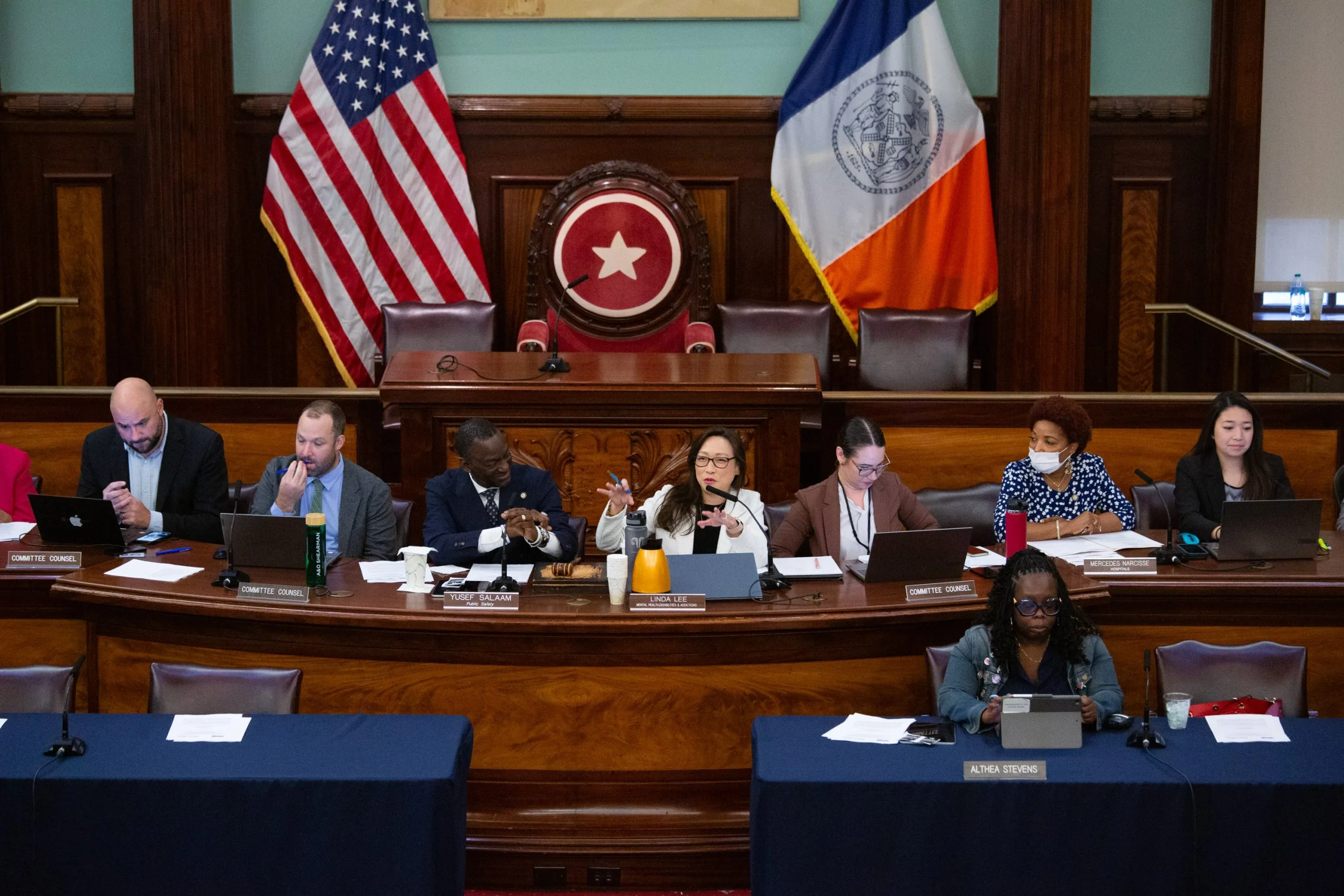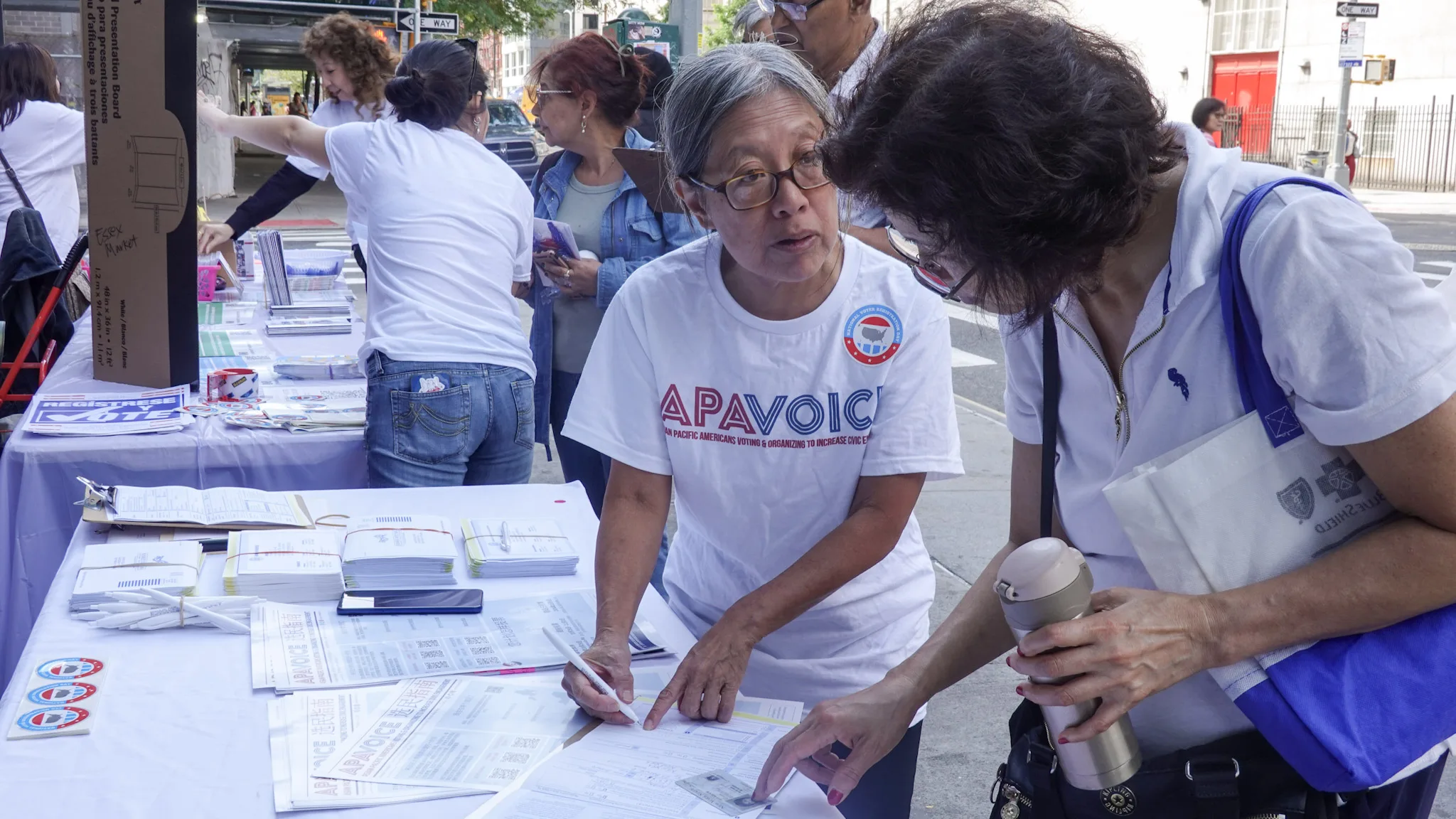When Shahana Hanif took her seat on the New York City Council in 2022, becoming the city’s first Muslim woman elected to the body, she expected her fair share of criticism. As a vocal progressive, she has not been shy in her support for numerous left-wing causes, such as defunding the NYPD’s budget and blocking U.S. Immigration and Customs Enforcement from targeting immigrant communities.
More recently, however, Hanif’s call for a ceasefire in Gaza and her October arrest at a rally demanding both Senator Kirsten Gillibrand and Senate Majority Leader Chuck Schumer support a ceasefire have caught the attention of Canary Mission, a clandestine website whose self-appointed mission is to expose “individuals and organizations that promote hatred of the USA, Israel and Jews on North American college campuses and beyond.”
Despite the website’s mission to “combat” anti-Semitism, critics insist they actively promote hate by targeting Palestinian activists in an attempt at stifling the activists’ free speech. They say the site can endanger activists by spreading misinformation and sharing their personal information online.
“I have been a target since I was elected as a Muslim woman,” Hanif told Documented. “With my rich student activism history at Brooklyn College, it is a perfect storm for right-wing forces and institutions to target me.”
Also Read: Among Arab New Yorkers, Fear of a Post 9/11 Like Crackdown Grows
Hanif first became aware that she was on the Canary Mission website in February after a staff member informed her about it. Her first thought was about the safety of her staff and herself.
“To see me there, sure, I ask myself how do I protect myself and how do I make sure my staff, who also have to deal with the burden of the scrutiny I experience, is hard,” she said. “I’m more protected than most, but you can imagine that I was surprised to see that they had a dossier of my entire history of what they perceive as anti-Semitic.”
On Hanif’s Canary Mission’s profile, anonymous moderators documented a series of tweets that the Council member posted, calling for a ceasefire and denouncing Israel’s attack on Palestinian civilians. The Council member says that her criticism of Israel is framed in such a way that could conflate any criticism of Israel as anti-Semitism.
“To be singled out and to be put into the portfolio of Canary Mission, they are trying to peel my base away and tell people that I’m not who I say I am,” she said. “That is unjust.”
First founded in 2015, Canary Mission has been equated to a McCarthyite list that targets students, academic critics, or generally anyone or any groups that vocally criticize Israel. The group lists students, professors, and professionals critical of Israel alongside individuals convicted of hate crimes and avowed white supremacists and members of violent racist organizations, creating a dangerous conflation of the two, critics say.
Information on who is behind Canary Mission is scant, and its editors remain anonymous. Reports have surfaced from the Jewish news site Forward, revealing that the Canary Mission has functioned as an intelligence asset for Israel’s Ministry of Strategic Affairs and the Shin Bet security service. American Jewish philanthropic organizations such as the Jewish Community Foundation of Los Angeles and the Helen Diller Family Foundation have poured hundreds of thousands of dollars into Megamot Shalom, an obscure Israeli nonprofit that is widely speculated to be a front for Canary Mission.
The website makes no distinction between organizations critical of Israel and far-right anti-semitic groups by listing organizations such as the Council on American Islamic Relations, Jewish Voice For Peace, and CODEPINK alongside the neo-Nazi website The Daily Stormer as well as the former grand wizard of the Ku Klux Klan, David Duke.
“Jewish Voice for Peace unequivocally condemns Canary Mission, a malicious website that seeks to vilify principled activists for Palestinian human rights with targeted campaigns of misinformation, bigotry and slander,” said Liv Kunins-Berkowitz, a member of Jewish Voice for Peace. “We reject the notion, propagated by Canary Mission and similar organizations, that there is anything shameful, hateful, or anti-Semitic about organizing for Palestinian rights.”
In a 2019 report issued to the United Nations, Palestine Legal found that of 1,853 individuals and 563 professors profiled, the website was disproportionately targeting Arab and Muslim students and faculty. Although Canary Mission contends it’s motivated by a desire to combat the rise in anti-Semitism on college campuses, it has singled out anyone who supports Palestinian human rights, such as Shahana Hanif.
On several occasions, activists have been visited and questioned by the FBI solely for having their names listed on Canary Mission. In one instance, Israel denied entry to four American civil rights leaders because their names appeared on the site. Palestine Legal, which is also listed on Canary Mission, has documented cases in which individuals profiled on the site have been put on leave and received death threats.
New Yorkers in particular are being singled out by the site. Of the 3,038 people currently profiled on Canary Mission, 523 are New Yorkers. That’s the second-highest number after California’s 533.
“This organization has moved in a way that has harmed many New Yorkers who support an end to war, an end to genocide, and a turn to democracy,” said Hanif. “It is effective in quieting the student movements we have been seeing ”
Katherine Azcona, a staff attorney with Bronx Defenders, says that when she first applied to be admitted to the New York State Bar in 2020, she was asked to sit down for a character fitness interview. However, a former employer of hers had submitted an affidavit to the Bar claiming that Azcona was anti-Semitic. As a student at John Jay College and CUNY Law, she was involved with Students for Justice in Palestine. Her membership in the organization was listed on Canary Mission when they added her to the site in 2016.
“The Bar sent me a copy, they scanned his affidavit, and he attached my entire Canary Mission profile,” said Azcona. “I was extremely nervous. You work so hard to go to law school, pass the bar, get a job and someone is essentially just trying to ruin that for you for political reasons.”
After contacting Palestinian Legal for support, they assisted her in writing a defense affidavit. Ultimately, Azcona was admitted into the Bar in 2020, but her fears of being punished for supporting Palestine persist.
“Somehow you are being punched for speaking out against colonialism, against injustice,” she said. “Whenever I apply for a job, I’m cognizant of who is going to look me up. When you Google my name it’s the first thing you see. So I’m a little more cautious about where I apply.”
Sundus Seif, a Palestinian American, was first profiled on Canary Mission a year after she graduated from Brooklyn College in 2016. As president of the campus Students for Justice in Palestine chapter, Seif says that she was unapologetically outspoken in her commitment to the liberation of her homeland.
But since graduating, Seif said she feels her history of campus activism has followed her. Although not ashamed, she has felt during job interviews, recruiters knew about her past before she even got a chance to talk.
“It never went away, it’s like 10 years later and it’s like the first thing that pops up,” she said. “Sometimes I feel people know my background before they even talk to me. They ask questions like where I’m from. When I say where I’m from they say no where are you really from.”
Many of her friends who were also active on campus found it difficult to find jobs after college due to being profiled on Canary Mission. One of her friends found a job, but Seif says that people associated with Canary Mission found out where they worked and began calling the job to get him fired. Seif was not fired, but she was still afraid that would happen to her at her new job, so Seif decided to be upfront with her new employer.
“I knew they were harassing people on Canary Mission,” she said. “I even spoke to the HR directly and told them my situation.”
Seif requested that her job not put any of her contact information on their website, and they obliged. Since then, Seif has remained guarded about where she currently works, being careful not to put any personal information online.
“That’s why I never had my LinkedIn updated with where I worked,” she said. “You are a college student, you want to have a nice, clean LinkedIn to have all these opportunities. I never did that because I didn’t want them to harass me.”
The fear of being singled out by Canary Mission has taken a toll on those involved in the movement for Palestinian human rights. Many activists have chosen to retreat from the public eye altogether.
Professor Ali Khan, founder of Legal Scholar Academy and an Emeritus Professor of Law at the Washburn University School of Law in Topeka, Kansas, recently argued that Canary Mission is harmful in that it could have a chilling effect on free speech on college campuses. Although he acknowledges that the website may be protected under the First Amendment, the website could effectively harm people’s careers.
“A good case could be made that what Canary Mission is doing is inflicting unlawful emotional harm and professional harm on lots of people,” he told Documented. “There is a tension between free speech and the prevention of harm. The law gives you remedies if somebody harms you.”
Khan speculates that those harmed by the site could potentially sue for libel, but the fact that the organization remains secretive may be easier said than done.
“My argument is if you are inflicting so much harm, emotional harm, professional harm, these are tangible harms,” he said. “I think the professors and other people on the list can actually sue Canary Mission but they don’t know what Canary Mission is and who are the people behind them. Who should they sue?”
Documented requested comment from Canary Mission, who did not respond as of publication.
Currently, Shahana Hanif, who is also co-chair of the City Council Committee to Combat Hate, is in the early stages of looking into a way to develop legislation that would expose who is behind Canary Mission.
“I want to know where the funding is coming from,” said Hanif. “There is a lot of information on me there. I’m a public figure and a lot of what they have is completely mischaracterized or straight-up lies. They shouldn’t be allowed to string together lies and spread it.”
Although Hanif acknowledges that finding out who is behind the site may be difficult, she is committed to her assertion that the site can not only stifle free expression but be dangerous.
“Depending on who you are and what resources you have it can be very life-threatening,” she said. “I’m just researching to see what angle we can legislate. I’m not sure that we can but the doxxing of students is a big concern for me. The stifling of freedom of speech is a big concern for me.”















